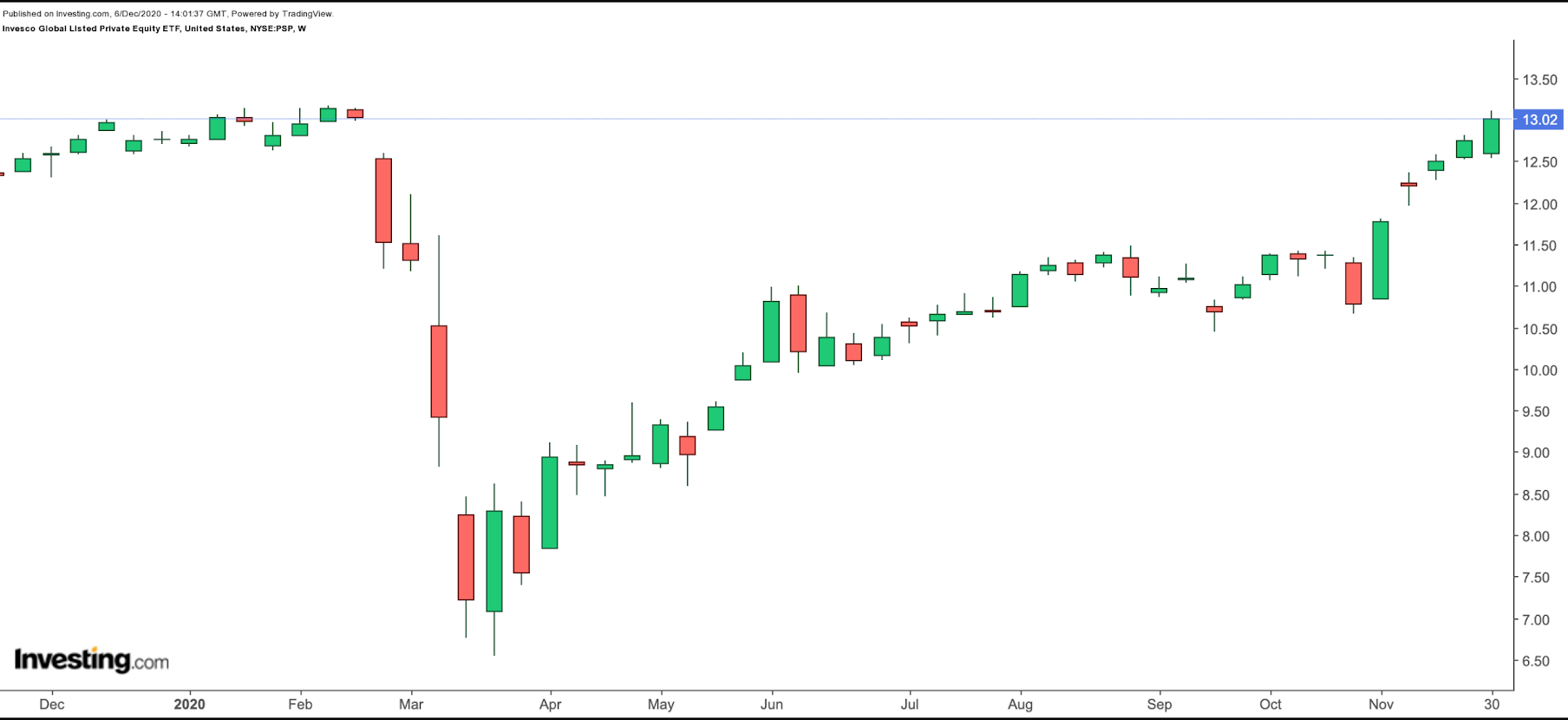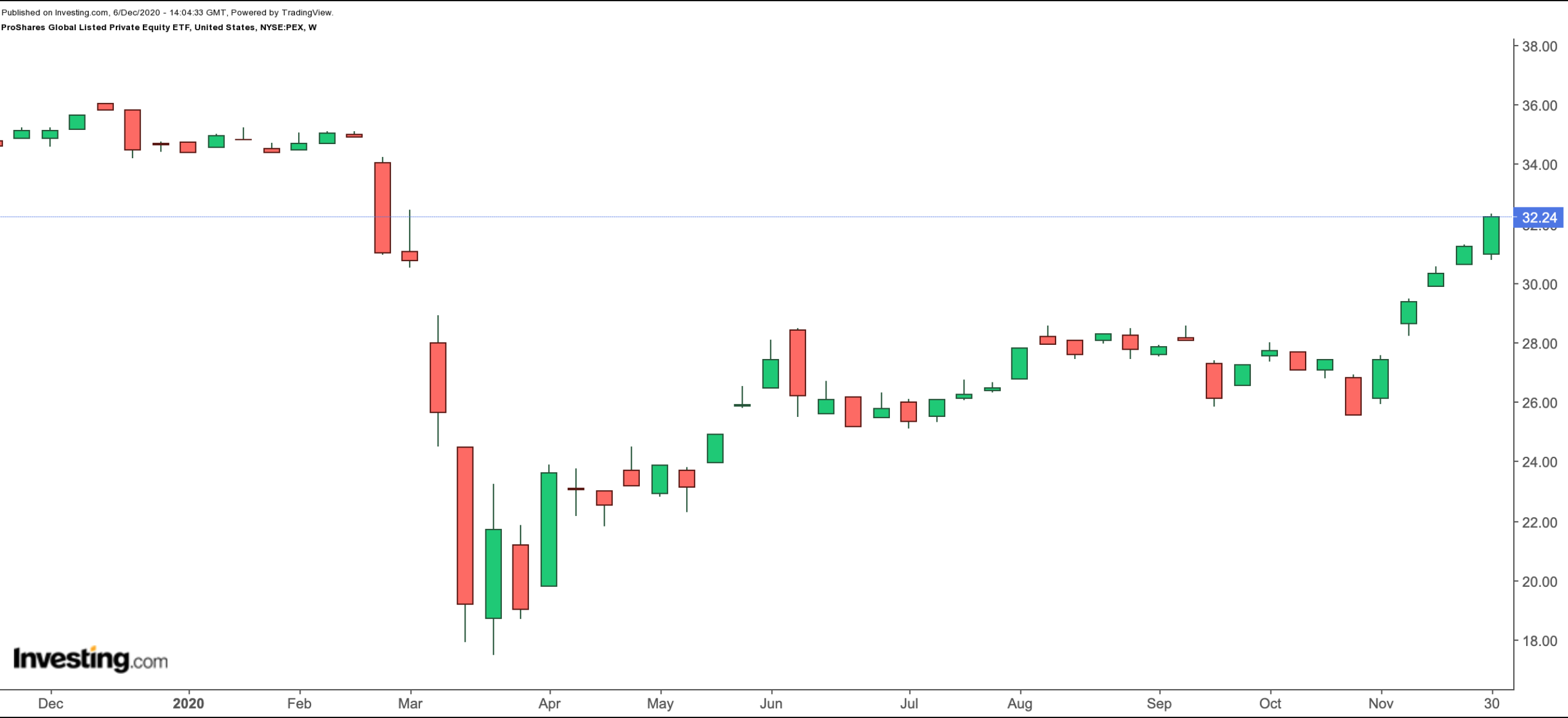Well-run private equity firms are currently in a strong position to boost the value of their investments. The main reason: COVID-19 has opened opportunities for many such firms to snap up assets at discounted or even distressed prices compared to a year ago.
What Is Private Equity?
Private equity can be defined as risk capital provided outside publicly-quoted markets. Private equity firms invest in established private businesses and take an equity stake—usually over 50%. They also typically participate in the daily management of their investments with the goal of making capital gains or creating value by selling or floating those firms in addition to annual dividend returns.
Unlike venture capital, whose focus is primarily on startups, especially in high-growth areas such as the technology sector, private equity firms tend to invest in well-establish companies. Other differences between these two types of firms would be outside the scope of this article.
In 2018, there was close to $350 billion in global private equity funds.
For investors unsure about which firms will create the most shareholder value in the long-run, exchange-traded funds (ETFs) can offer exposure to a range of firms. However, remember these funds typically have annual expense ratios.
With that information in mind, here are two ETFs that focus on private equity businesses:
1. Invesco Global Listed Private Equity ETF
- Current Price: $13.02
- 52-Week Range: $6.55-$13.18
- Dividend Yield: 6.25%
- Expense Ratio: 1.59%
The Invesco Global Listed Private Equity ETF (NYSE:PSP) provides access to private equity companies, including publicly-listed firms, business development companies, master limited partnerships as well as other businesses that invest in or lend capital to privately-held companies.
We previously covered bussiness development companies. In the US, master limited partnerships are publicly-traded partnerships that tend to offer high dividends (or cash distributions). By law, they generate over 90% of their income from qualifying operations that are usually in commodities, natural resources, or real estate. (We plan to cover ETFs that focus on master limited partnerships in a separate article).

PSP, which has 67 holdings, tracks the Red Rocks Global Listed Private Equity Index. The fund started trading in 2006. Net assets under management are close to $180 million.
Close to 31% of the holdings are in the top ten stocks. Manufacturer aerospace components, TransDigm Group (NYSE:TDG), Netherlands-based consumer internet platform Prosus (OTC:PROSF), Switzerland-headquartered global private equity firm Partners Group (OTC:PGPHF), private investment firm Blackstone Group (NYSE:BX), and Australia-based conglomerate Wesfarmers (OTC:WFAFY), whose diverse operations expand leisure firms, home improvement, outdoor living, and energy, lead the names in the fund.
As far as industries are concerned, funds are distributed among financials (64.18%), industrials (14.06%), and consumer discretionary (11.71%), among others. Businesses from the US stand at almost 40%, followed by the UK, Sweden, Switzerland, Netherlands, and Australia, among others.
The fund is up by 1.49% since the start of the year and hit a 52-week high on Dec. 2.
2. ProShares Global Listed Private Equity ETF
- Current Price: $32.21
- 52-Week Range: $17.49 - $36.03
- Dividend Yield: 8.66%
- Expense Ratio: 3.41%
The ProShares Global Listed Private Equity ETF (NYSE:PEX) offers access to a range of global private equity companies that directly invest in private enterprises.
PEX, which has 30 holdings, tracks the LPX® Direct Listed Private Equity Index. The fund started trading in 2013. Net assets under management are about $17 million, much less than those in PSP.
Approximately 60% of the holdings are in the top ten stocks. Business development company Ares Capital (NASDAQ:ARCC), UK-based private equity and infrastructure investment specialist 3i (LON:III), Canada-based Onex (OTC:ONEXF), (TSX:ONEX), which focuses on private equity investments in the electronics manufacturing and healthcare information technology, and two France-headquartered businesses, private equity and venture capital firm Eurazeo (PA:EURA) and investment group Wendel (PA:MWDP) head the names in the fund.

As far as industries are concerned, PEX is not as diversified as PSP and financials comprise 94.6% of its holdings.
The ETF is down about 6.5% since the start of the year. Potential investors who are looking for a PE fund may want to study both funds more closely. If we had to choose between the two, we would likely favor PSP at this point.
